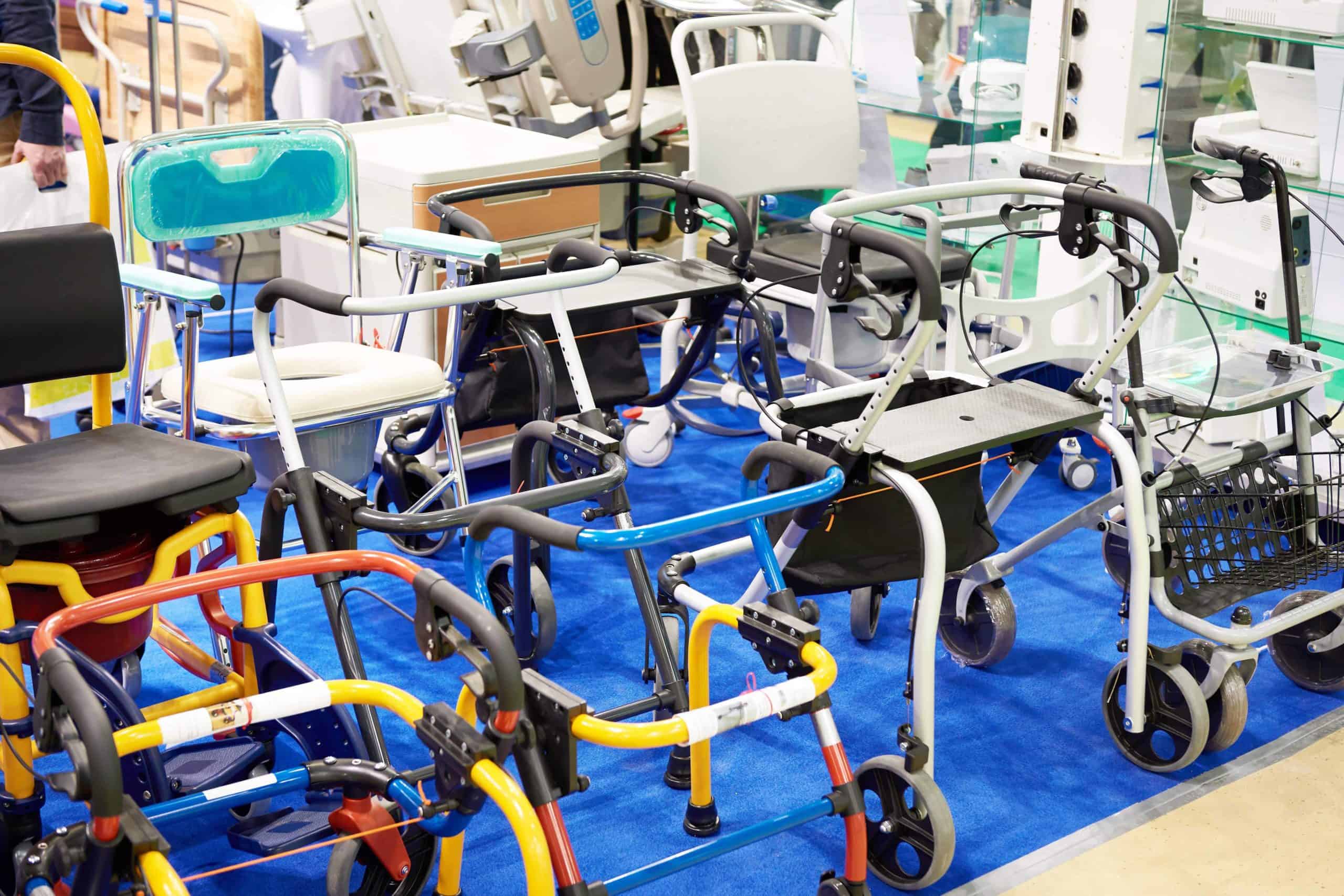

Mobility Disability
Do Men and Women Have Different Mobility and Disability Issues In Old Age?
Last Updated –
SonderCare Learning Center

SonderCare Learning Center
Studies show that, while women live longer on average, they are more likely than men to struggle with both regular daily tasks and mobility activities as they age. As such, men and women can have different mobility and disability issues related to old age and it could potentially affect their care and treatment. Let’s explore the question, Do Men and Women Have Different Mobility and Disability Issues In Old Age?
SonderCare Editorial Policy
All of our articles are written by a professional medical writer and edited for accuracy by a hospital bed expert. SonderCare is a Hospital Bed company with locations across the U.S. and Canada. We distribute, install and service our certified home hospital beds across North America. Our staff is made up of several hospital bed experts that have worked in the medical equipment industry for more than 20 years. Read more about our company here.
Mobility – the ability to move or walk freely and easily – is critical for functioning well and living independently. As we age, changes in how we walk (called gait), balance, and physical strength affect how well we walk. Loss of physical function can accelerate after hospitalization, falls, or if the senior is diagnosed with movement-related disorders like Parkinson’s disease.
Skeletal changes affect both men and women. As we grow older, bones shrink in size and density, weakening them and making them more susceptible to fracture. You might even become a bit shorter. Muscles generally lose strength, endurance and flexibility, three factors that can affect what’s necessary for gait: coordination, stability and balance. However, men and women do age differently, with different rates of mobility and disability issues.
As noted above, bones become more brittle with age in both men and women. However, it affects women earlier than men because, once women reach the age of 50, they undergo menopause. It happens when the ovaries stop producing the hormone estrogen. Women already have smaller, thinner, less dense bones than men, and when they experience menopause, they are at greater risk of injury.
The common symptoms or side effects are hot flashes, fatigue, lower libido, and a loss of collagen at a more dramatic rate than in men. This rapid collagen loss can cause women to appear older more quickly. The female hormone estrogen is essential for healthy bones; once menopause begins, bone density can also go down. Bones become brittle, seniors experience reduced mobility, and falls pose higher risks. Even mild stresses from routine actions like bending over can lead to a fracture.
For men, aging doesn’t bring on a sudden hormonal change as it does for women. The primary hormone in men, testosterone, does not begin to decline until between 55 and 60 – a process sometimes called andropause. It’s not surprising that research shows higher levels of mobility limitations among women than men.*
Women represent a growing proportion of older people and experience increasing disability in their long lives, with the prevalence of disability among women compared with men aged 50+ years was 40.1% vs. 23.8%.** Much of this can be explained by how women, on average, live longer – according to the Center for Disease Control, the average life expectancy for American men is roughly 76, while the average life expectancy for women is about 81. It can create social and economic barriers for women and their access to healthcare, especially if they did not have an independent income during their life.
One fundamental difference is brain aging. Men with diabetes, a history of strokes, or obesity are more likely to suffer from cognitive impairment. They are more likely to exhibit wandering tendencies requiring closer care and better fall protection. However, women still make up two-thirds of people living with Alzheimer’s disease in the U.S.; they are more likely to suffer from cognitive impairment if they are dependent on others for daily tasks or lack a social network.
Many disabilities affect both men and women but in different ways. The risk of developing Parkinson’s disease, for instance, is twice as high in men than in women, but women see the disease progress faster and have a higher mortality rate. Families should factor these differences into care and treatment plans, and families might want to consider preparing their homes earlier. It can start with changing the traditional flat bed with a premium hospital bed.
One way to prepare the home is to add a hospital bed. Designed to conform to the latest international standards, SonderCare hospital beds provide your aging loved one with a sense of safety, comfort, and greater independence than standard flat or adjustable beds. These beds don’t look like hospital beds – they look more like traditional beds – but provide the same levels of stability and comfort. Should their conditions progress, seniors will have a bed with features like hi-lo elevation to reduce the likelihood of falls.
If you’re considering adding a care bed to the room of a loved one who is showing signs of disease or mobility regression, talk to the SonderCare team today. Our range of hospital beds and accessories will make your SonderCare bed an essential tool for caring for medical conditions in the comfort of one’s home.
A variety of factors can affect how men and women experience aging and the treatment options available to them, including hormones, lifestyles, and societal expectations. We can experience muscle loss, bone loss, and general health issues as we age as a result of hormones, such as estrogen and testosterone. Diet, exercise, and smoking can also affect aging and mobility. As a result of society’s expectations and stereotypes about aging and disability, men may be less likely than women to seek assistance or receive support.
Men and women both experience mobility and disability issues as they age. According to research, women are more likely to develop osteoporosis, which can increase their risk of fractures and mobility problems. Women are also more likely to suffer from osteoarthritis than men. In addition to prostate cancer and heart disease, men are more likely to suffer from conditions that affect mobility. Among older adults, falls are a leading cause of injury and are more common in women. Falling is partially caused by osteoporosis, which weakens bones and increases fall risk in women. Men are also more likely to suffer from muscle weakness, balance problems, and neurodegenerative diseases such as Parkinson’s disease. The trends mentioned here are general in nature, and each individual may have a different experience. It is always important to seek appropriate medical care and support as needed.
Start Exploring Mobility Disability Topics With SonderCare
Are you recently discharged from hospital, experiencing mobility issues, or in need of palliative or senior care? Enjoy a smoother recovery and get the luxury you deserve by choosing our home hospital products. Contact us today to discuss home hospital beds, mattresses, stand assist chairs and other accessories to make your home hospice perfect for a truly comfortable experience.
Are you looking for the most recent articles on Mobility Disability subjects? Browse our latest resources below and let us know if you have any questions. We’re here to support you as you embark on your road to home hospital care.
Seeking The Best Care For Your Loved One?
Browse North America's Luxury
Home Hospital Equipment
Inventory